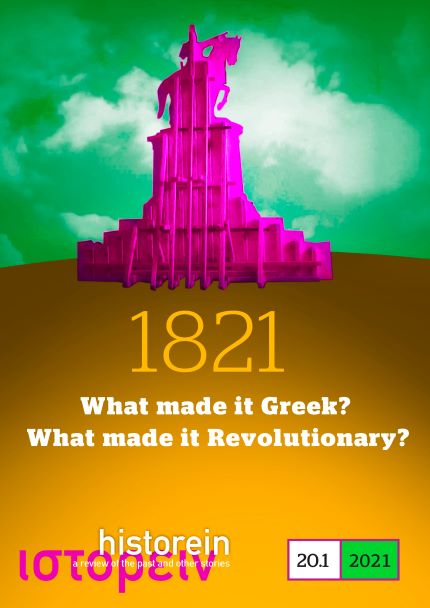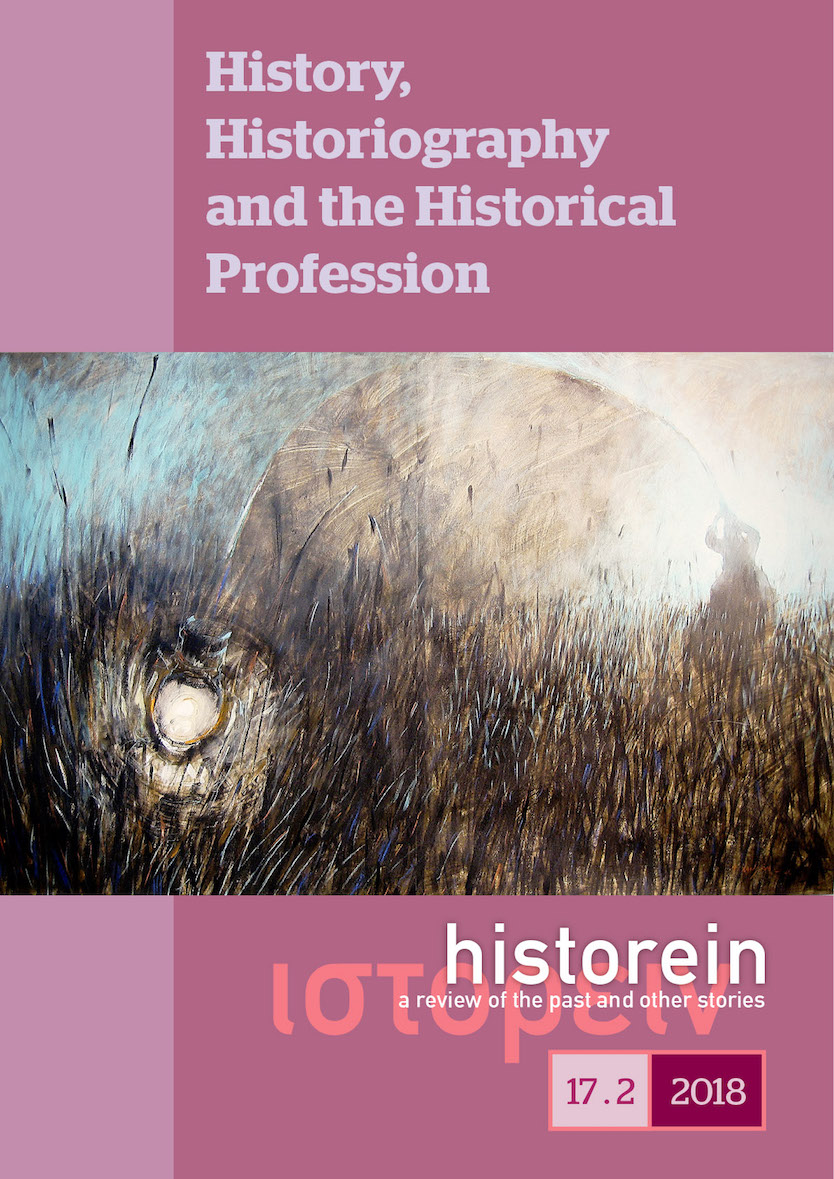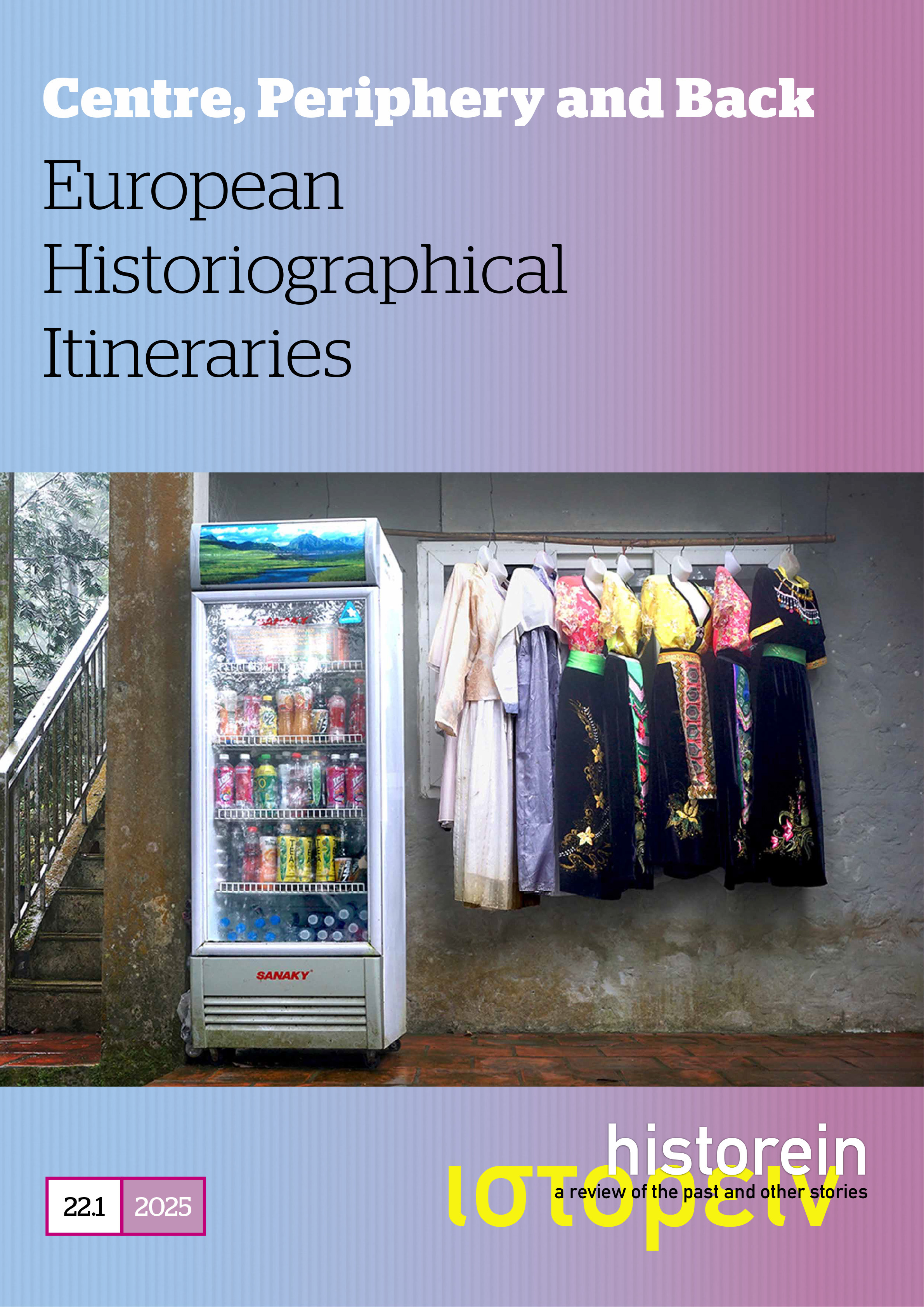Imperial Rhetoric and Revolutionary Practice: The Greek 1821

Abstract
The article focuses on the revolutionary period of 1821 and examines how the bloody uprising of the Greeks against the Ottomans, in conjunction with the international environment, transformed the notion of the nation. Before the revolution, the term “nation” had mostly cultural connotations and, from a political point of view, was a neutral category within an imperial framework, without claims to be the primary and the dominant element of political identity. The revolutionary period transformed the perception of the nation into an active political and social force and into the most important actor/subject of the historical and political processes.
Article Details
- How to Cite
-
Dialla, A. A. (2022). Imperial Rhetoric and Revolutionary Practice: The Greek 1821. Historein, 20(1). https://doi.org/10.12681/historein.27480
- Section
- II. THE GREEK REVOLUTION AND THE EMPIRES

This work is licensed under a Creative Commons Attribution-NonCommercial-ShareAlike 4.0 International License.
The copyright for articles in this journal is retained by the author(s), with first publication rights granted to the journal. By virtue of their appearance in this open access journal, articles are free to use (with the exception of the non-granted right to make derivative works) with proper attribution for non-commercial uses (licence Creative Commons 4.0). EKT/NHRF retains the worldwide right to reproduce, display, distribute, and use articles published in Historein in all formats and media, either separately or as part of collective works for the full term of copyright. This includes but is not limited to the right to publish articles in an issue of the Journal, copy and distribute individual reprints of the articles, authorize reproduction of articles in their entirety in another EKT/NHRF publication, and authorize reproduction and distribution of articles or abstracts thereof by means of computerized retrieval systems.




